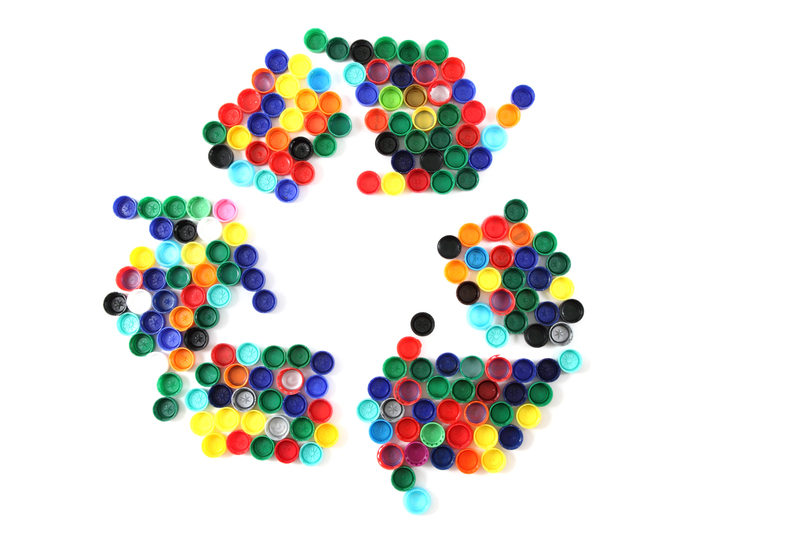Environmentally Sustainable Business Waste Handling
Posted on 24/05/2025
In an era marked by a pressing need for environmental conservation, businesses are increasingly recognizing the importance of sustainable waste management. Environmentally sustainable business waste handling is not merely a corporate responsibility but a strategic approach that can yield substantial benefits. This article examines the essential elements of sustainable waste management for businesses, offering insights, tips, and a balanced view of its pros and cons.

The Importance of Sustainable Waste Handling
Incorporating environmentally sustainable waste handling strategies can significantly reduce a company's environmental footprint. Traditional waste management practices often involve excessive use of landfills and incinerators, contributing to pollution and resource depletion. By adopting greener methods, businesses can play a pivotal role in promoting ecological balance.
Strategies for Sustainable Business Waste Management
1. Reduce, Reuse, Recycle (The 3 Rs)
- Reduce: Minimize waste generation by optimizing production processes, using fewer materials, and practicing resource efficiency.
- Reuse: Implement policies to reuse materials wherever possible. For instance, reusing packaging materials can significantly cut down waste.
- Recycle: Establish a robust recycling program for materials such as paper, plastic, metal, and electronic waste.
2. Composting Organic Waste
- Organic waste from food production or the cafeteria can be composted to create nutrient-rich soil, reducing the amount of waste sent to landfills.
3. Energy Recovery
- Certain waste materials can be converted into energy through processes like anaerobic digestion and waste-to-energy (WTE) technologies, providing a sustainable energy source.
4. Eco-Friendly Packaging
- Switch to biodegradable or recyclable packaging materials to lessen environmental impact and align with consumer preferences for green products.
Technology and Innovations in Waste Handling
- Smart Waste Management Systems: These systems use sensors and IoT technology to monitor waste levels and optimize collection routes, reducing fuel consumption and emissions.
- Automated Sorting Systems: Advanced recycling facilities employ AI-driven sorting machines to improve the efficiency and accuracy of the recycling process.
Implementing Policies and Education
Creating a sustainable waste management culture within an organization requires clear policies and continuous education:
- Waste Audits: Regularly conduct waste audits to identify major waste-generating processes and areas for improvement.
- Employee Training: Educate employees on sustainable practices and the importance of waste segregation and recycling.
- Partnerships: Form partnerships with environmentally conscious waste management companies and recycling plants.
Pros and Cons of Sustainable Waste Handling
- Pros:
- Environmental Benefit: Reduces pollution and conserves natural resources, contributing to a healthier planet.
- Cost Savings: Efficient waste handling can lower disposal and raw material costs.
- Enhanced Reputation: Green practices can improve a company's image, attracting eco-conscious consumers and investors.
- Regulatory Compliance: Helps comply with environmental regulations, avoiding fines and legal issues.
- Cons:
- Initial Costs: Setting up sustainable waste management systems can require a significant initial investment.
- Complexity: Managing a comprehensive waste handling program can be complex and time-consuming.
- Continuous Demand: Requires ongoing commitment and frequent updates to stay ahead of new regulations and technologies.
Tips for Effective Waste Handling
1. Start Small: Begin with simple changes like reducing paper use or setting up a recycling program.
2. Engage Stakeholders: Involve employees, customers, and suppliers in your waste management efforts.
3. Monitor Progress: Use data and analytics to track waste reduction achievements and identify further opportunities for improvement.
4. Stay Updated: Keep abreast of the latest waste management technologies and best practices.

Key Takeaways
- Sustainable waste management is essential for reducing environmental impact.
- The 3 Rs (Reduce, Reuse, Recycle) are foundational principles.
- Composting and energy recovery can significantly contribute to waste reduction.
- Smart technologies can enhance waste handling efficiency.
- Pros include environmental benefits, cost savings, and improved reputation.
- Cons involve initial setup costs and complexity.
Conclusion
Environmentally sustainable business waste handling is not just a trend but a vital practice for long-term ecological and economic stability. While challenges exist, the benefits far outweigh the drawbacks. By adopting thoughtful waste management strategies, leveraging technology, and implementing comprehensive policies, businesses can make significant strides toward a sustainable future. In doing so, they contribute to the conservation of our planet while also achieving economic and social gains.
Latest Posts
Recycling for Environment Health
Start Your Plastic-Free Kitchen Journey
Recycling Polystyrene for a Greener Earth






